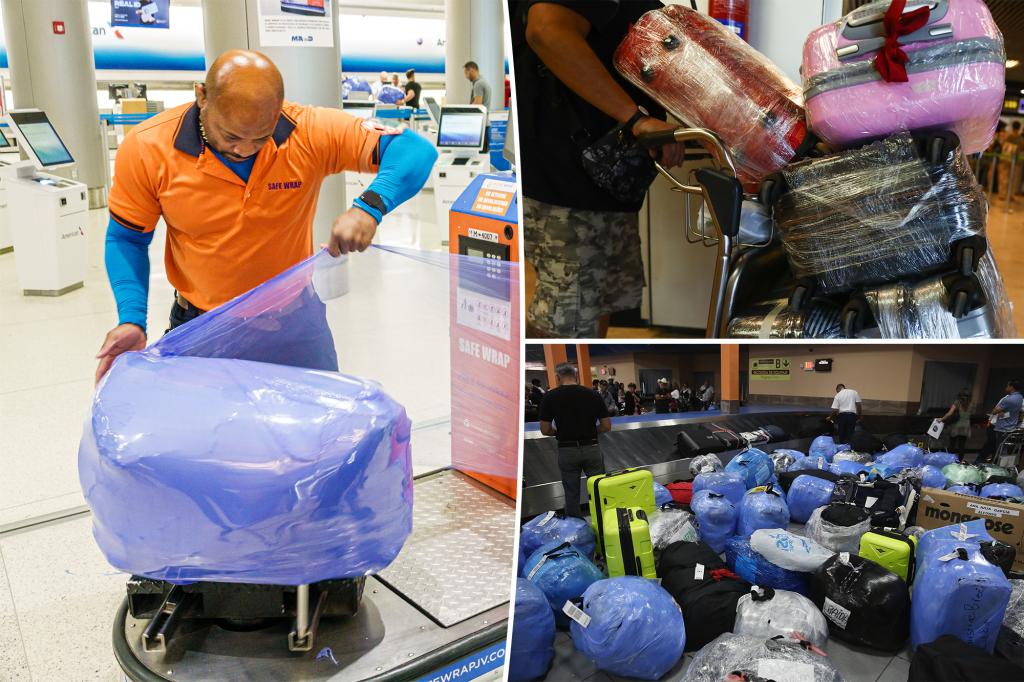The Transportation Security Administration has expressed concerns regarding the practice of wrapping suitcases in plastic at airports as a security measure. While travelers often wrap their luggage to prevent damage, theft, and unwanted items from being snuck into their bags, the TSA claims that this practice may not actually provide added security. In fact, wrapping baggage can complicate the security screening process for both travelers and authorities, ultimately leading to unnecessary delays and inconvenience.
When a checked bag is flagged during a mandatory bomb inspection, TSA officers must review the 3D X-ray image to ensure the safety of all passengers. While the scanner won’t specifically identify wrapped bags, they are not exempt from inspection, which may involve cutting them open for further examination. This means that wrapped bags are just as susceptible to inspection-induced damage as unwrapped ones, and the TSA does not replace the wrapping after inspection.
In response to concerns about theft, the TSA reassures travelers that every inspection room is equipped with CCTV cameras, minimizing the risk of employees stealing items from wrapped bags. However, despite the security provided by surveillance cameras, the TSA does not guarantee the security of items inside the suitcase once it is opened for inspection. Additionally, while baggage protection service Secure Wrap offers complimentary rewrapping after bags are inspected, this does not eliminate the inconvenience and potential damage caused by the inspection process.
Experts recommend that wrapping bags in plastic is an unnecessary and expensive measure that can ultimately lead to a dissatisfying outcome. Instead, travelers are advised to use reusable fabric wraps or recyclable coverings to protect their luggage during travel. By using environmentally-friendly and easily identifiable wrapping materials, travelers can reduce the risk of damage to their bags while also minimizing the impact on the environment.
In cases where wrapping is unavoidable, travelers are encouraged to use TSA-approved locks on their luggage to facilitate easy inspection without the need to cut open the wrapping. This approach allows for added security while protecting the contents of the bag from being accessed by unauthorized individuals. Ultimately, travelers should consider the environmental impact, convenience, and security implications of wrapping their luggage in plastic before deciding whether or not to employ this practice at airports.


